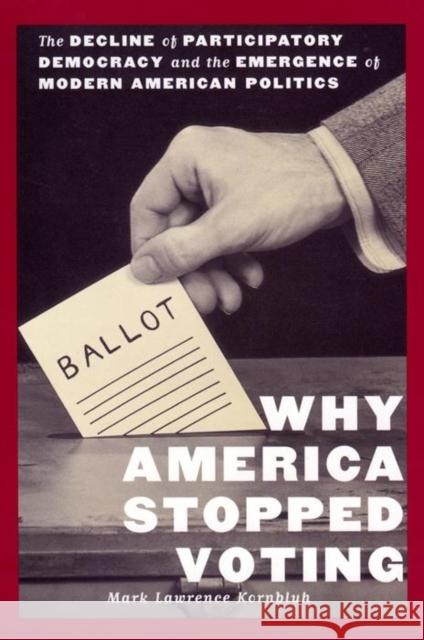Why America Stopped Voting » książka
Why America Stopped Voting
ISBN-13: 9780814747087 / Angielski / Twarda / 1999 / 352 str.
Public involvement in the electoral process has all but disappeared. Not since World War I has even half the electorate cast ballots in an off-year election. Even at the presidential level, voting has plummeted dismally. Nonvoting is, quite simply, systemic in American politics. It was not always this way. With the integration of America's mass electorate into the electoral system in the 1830s, eligible voters were intensely participatory and remained highly mobilized throughout the nineteenth century. The turning point in American politics came during the first two decades of this century when, from unmatched heights in the 1890s, voter turnouts fell repeatedly election after election. Examining mass political behavior in twenty successive national elections, Why America Stopped Voting is the first work to combine political analysis with social analysis, resulting in a truly interdisciplinary book that places electoral participation within the larger context of American culture and society. A milestone in the evolution of our understanding of electoral politics, Why America Stopped Voting shows that the enduring decline of voter mobilization was gradual, rather than drastic and not attributable to particular political events or simply the notion that -a happy citizenry is politically apathetic.- Rather, Kornbluh shows that fundamental social changes that restructured virtually every aspect of American life at the turn of the century were at the heart of the decline in voter participation.











